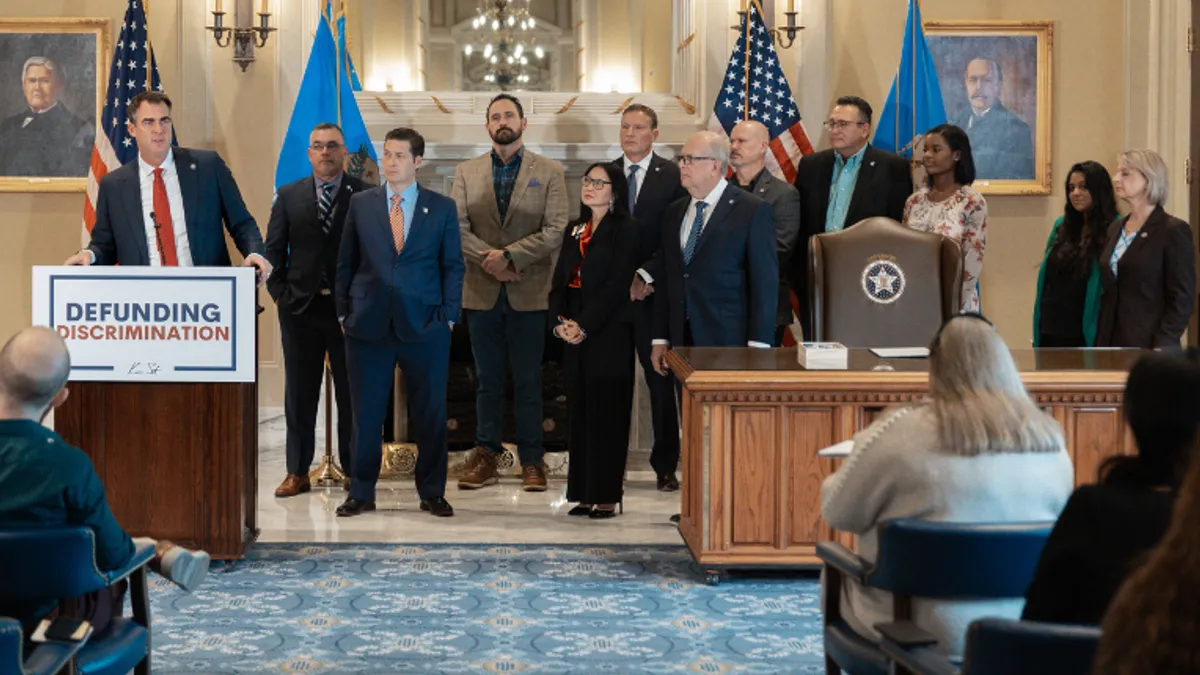Dive Brief:
- Rather than be threatened by boot camp models, colleges should learn from them and integrate them into their core to better prepare their graduates for a wide variety of jobs, according to Matthew Rascoff, associate vice provost for digital education and innovation at Duke University.
- He argues in a commentary in Evolllution that institutions should not view the generally short-term and narrowly focused courses as a disruptive threat, but a way to even better prepare students for the job market because, he wrote, “the future of work and the future of learning are converging,” and the demand for a combination of skills should be seen as an opportunity. “Educators should embrace the chance to combine timeless knowledge and timely skills, which will be the basis for graduates’ lifelong success both as professionals and as citizens,” he said.
- Rascoff describes boot camp initiatives that have had varying degrees of success, but noted that Duke is using a boot camp model as part of its some 50 ungraded mastery-learning online offerings through Courseca, and it has been successful and well received by students.
Dive Insight:
Ten other universities are offering co-curricular skills development opportunities for their students through a pilot program with Coursera based on the Duke model, which one student leader said eliminates the “false dilemma that students face between taking classes you ‘want’ versus classes you think you ‘need.’ ”
A U.S. Department of Education program working with eight institutions is designed to provide funds for students using such non-traditional training, but has only approved one program after three years. Some critics also say Trilogy Education Services, which works with about 30 universities to provide boot camps, does not benefit the deeper goals of the institutions that do little but provide the space and the brand and earn profits. The structure also might mislead students who believe the programming is provided by the university. Others suggest contracting for such training programs is the best approach for colleges and universities and say that Trilogy has been “an excellent partner”.
Three College of Charlestown professors found in nine national focus groups and several interviews that going to a boot camp or to college is not an either/or proposition, and that even those developing the programs were surprised by the percentage of participants who planned to complete college. “Camps are filled with highly motivated students committed to making themselves more marketable and economically successful than what their college degrees provided,” their report said.
Joseph Aoun, president of Northeastern University, which developed a successful boot camp, wrote Robot-Proof, a book where he suggests that the programs can be part of a path going forward where schools offer a combination of data, technological and human literacy so that students can “invent, create, and discover” and fill “needs in society that even the most sophisticated artificial intelligence agent cannot.”
A new joint report from the National Academies of Sciences, Engineering and Medicine recommends integration of these approaches will “help students enter the workforce, live enriched lives, and become active and informed citizens."













